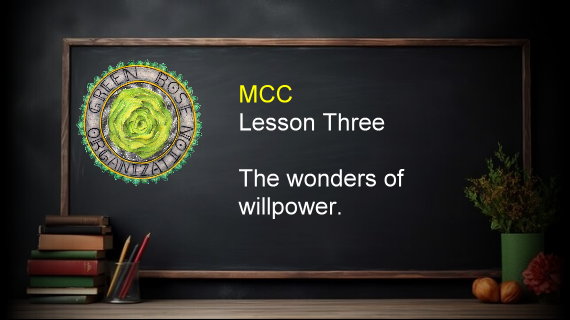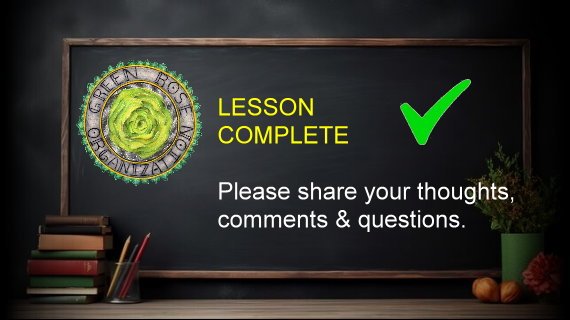
THE WONDERS OF WILLPOWER
THE ESSENCE OF WILLPOWER AND HOW WE CAN BEGIN TO STRENGTHEN IT
At its core, willpower is the ability to regulate impulses, emotions, and behaviors in pursuit of long-term goals or values. It’s often described as a form of self-control or mental strength that allows us to resist immediate temptations in favor of achieving something meaningful. Essentially, willpower is the bridge between intention and action, relying on discipline and focus to stay aligned with what matters most. To strengthen willpower, think of it like a muscle that grows with deliberate practice and care. Here are some strategies: 1. Clarify Your Goals and Values: When your goals are rooted in something deeply meaningful to you, they create intrinsic motivation. Knowing your “why” provides the foundation for sustained effort. 2. Start Small and Build Momentum: Focus on achievable steps that are within your reach. Success in small efforts builds confidence and reinforces the habit of perseverance. 3. Practice Mindfulness and Emotional Awareness: Being mindful of your thoughts and feelings helps you pause before reacting impulsively. Recognize when emotions, like stress or fatigue, may weaken your resolve. 4. Cultivate Good Habits: Habits reduce the need for constant decision-making, freeing up your mental resources. Simple routines, like planning ahead, can make it easier to stay disciplined. 5. Avoid Overload: Willpower can be depleted by excessive demands. Give yourself breaks and avoid multitasking when you’re working on challenging tasks. 6. Visualize Success: Imagining yourself overcoming obstacles or achieving your goals can enhance your belief in your ability to follow through. 7. Reward Progress: Celebrate your milestones, even the small ones. Positive reinforcement encourages your brain to repeat behaviors that lead to success. 8. Develop Emotional Regulation Techniques: Learning how to manage stress—through practices like mindfulness, deep breathing, or journaling—can protect your willpower from being drained. In practical terms, strengthening willpower is about aligning your decisions with the person you want to become. It’s less about suppression and more about channeling energy into meaningful choices.
HOW STRESS AND TRAUMA CAN BE USED TO STRENGTHEN WILLPOWER
Stressful situations and trauma, while deeply challenging, can serve as catalysts for strengthening willpower when approached with intentionality and resilience. Here’s how: 1. Reframing Struggles as Growth Opportunities—Viewing adversity as a chance for personal growth rather than as mere suffering shifts your mindset. Instead of thinking, “This is overwhelming,” reframing it as, “This is an opportunity to develop resilience and strength” fosters grit. 2. Developing Emotional Awareness and Regulation—Hardship forces us to confront intense emotions. By learning to process and regulate these emotions—through mindfulness, self-reflection, or therapeutic techniques—we cultivate the ability to stay composed under pressure, reinforcing mental discipline. 3. Strengthening Adaptive Responses—Trauma often disrupts our sense of control, but intentionally choosing healthy coping mechanisms (rather than avoidance) strengthens willpower. Whether through journaling, mindful breathing, or constructive action, each deliberate choice reinforces self-discipline. 4. Harnessing Meaning and Purpose—Many people emerge stronger from hardship when they anchor their struggles to a sense of meaning. Asking, “How can this experience help me grow?” or “What virtues can I develop from this?” transforms adversity into an intentional journey toward fortitude. 5. Training Delayed Gratification—Enduring stress requires postponing immediate comfort for long-term well-being. Practicing small acts of self-restraint—like consciously choosing patience over impulsivity—gradually builds the stamina necessary for sustained willpower. 6. Embracing Discomfort as a Teacher—Rather than avoiding stress, leaning into it with awareness fosters adaptability. When we train ourselves to face discomfort head-on, we condition our mind to withstand challenges without succumbing to despair. Ultimately, trauma and stress can either weaken or strengthen willpower—it depends on how they are approached. With deliberate effort, hardship can refine resilience, deepen emotional intelligence, and fortify one’s ability to act with purpose despite difficulty.

